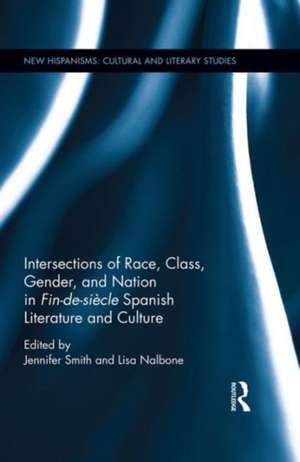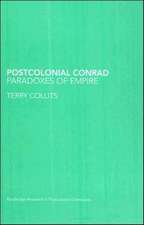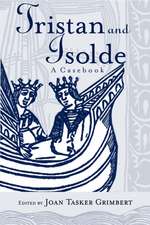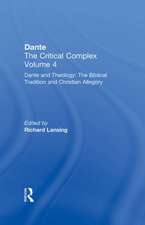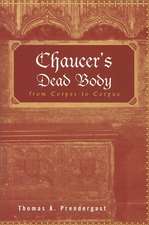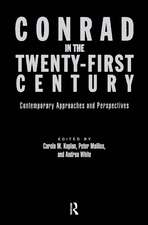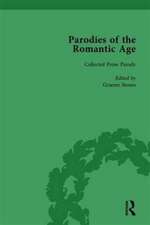Intersections of Race, Class, Gender, and Nation in Fin-de-siècle Spanish Literature and Culture: New Hispanisms: Cultural and Literary Studies
Editat de Jennifer Smith, Lisa Nalboneen Limba Engleză Hardback – 5 sep 2016
Toate formatele și edițiile
| Toate formatele și edițiile | Preț | Express |
|---|---|---|
| Paperback (1) | 416.22 lei 6-8 săpt. | |
| Taylor & Francis – 21 mai 2019 | 416.22 lei 6-8 săpt. | |
| Hardback (1) | 1053.92 lei 6-8 săpt. | |
| Taylor & Francis – 5 sep 2016 | 1053.92 lei 6-8 săpt. |
Preț: 1053.92 lei
Preț vechi: 1285.26 lei
-18% Nou
Puncte Express: 1581
Preț estimativ în valută:
201.73€ • 219.20$ • 169.56£
201.73€ • 219.20$ • 169.56£
Carte tipărită la comandă
Livrare economică 19 aprilie-03 mai
Preluare comenzi: 021 569.72.76
Specificații
ISBN-13: 9781138206472
ISBN-10: 1138206474
Pagini: 222
Ilustrații: 20
Dimensiuni: 156 x 234 x 20 mm
Greutate: 0.43 kg
Ediția:1
Editura: Taylor & Francis
Colecția Routledge
Seria New Hispanisms: Cultural and Literary Studies
Locul publicării:Oxford, United Kingdom
ISBN-10: 1138206474
Pagini: 222
Ilustrații: 20
Dimensiuni: 156 x 234 x 20 mm
Greutate: 0.43 kg
Ediția:1
Editura: Taylor & Francis
Colecția Routledge
Seria New Hispanisms: Cultural and Literary Studies
Locul publicării:Oxford, United Kingdom
Public țintă
Postgraduate and UndergraduateCuprins
CONTENTS
Introduction: Intersections of Race, Class, Gender, and Nation in Fin-de-Siècle Spain
Jennifer Smith and Lisa Nalbone
PART I TRANSATLANTIC RELATIONS
1. Challenging Pasts, Exploring Futures: "Race," Gender, and Class in the Fin-de-siècle Essays of Rosario de Acuña, Concepción Gimeno de Flaquer, and Belén Sárraga
Christine Arkinstall
2. Domesticating Cuba: Romantic Liaisons and Imperial Power in Spanish Zarzuela
Mar Soria
3. Racism in "Yankilandia": Emilia Pardo Bazán and the Global Color Line
Christy Presson Shaughnessy
PART II RACIAL RECUPERATION AND RACIAL OTHERNESS
4. Racial Identity, Social Critique, and Class Dynamics in Pardo Bazán’s Una prueba-La Cristiana and El becerro de metal
Maryellen Bieder
5. Good and Bad Fusion in Emilia Pardo Bazán’s El becerro de metal (1906)
Margot Versteeg
6. "Playing Japanese" in Fin-de-siècle Zarzuela
David R. George, Jr.
PART III. SPANISH NATIONAL IDENTITIES
7. The Unbearable Lightness of Being a Nation in Galdós’s Early Historical Fiction
Toni Dorca
8. Realism, Fantasy, and the Gendered Trope of Colonial Relations in Galdós’s Fiction
Mary Coffey
9. Rewriting Carmen in Pardo Bazán’s Insolación: Subversions of "Race," Gender, and Class
Carmen Pereira-Muro, Translation by Holly Villines
Introduction: Intersections of Race, Class, Gender, and Nation in Fin-de-Siècle Spain
Jennifer Smith and Lisa Nalbone
PART I TRANSATLANTIC RELATIONS
1. Challenging Pasts, Exploring Futures: "Race," Gender, and Class in the Fin-de-siècle Essays of Rosario de Acuña, Concepción Gimeno de Flaquer, and Belén Sárraga
Christine Arkinstall
2. Domesticating Cuba: Romantic Liaisons and Imperial Power in Spanish Zarzuela
Mar Soria
3. Racism in "Yankilandia": Emilia Pardo Bazán and the Global Color Line
Christy Presson Shaughnessy
PART II RACIAL RECUPERATION AND RACIAL OTHERNESS
4. Racial Identity, Social Critique, and Class Dynamics in Pardo Bazán’s Una prueba-La Cristiana and El becerro de metal
Maryellen Bieder
5. Good and Bad Fusion in Emilia Pardo Bazán’s El becerro de metal (1906)
Margot Versteeg
6. "Playing Japanese" in Fin-de-siècle Zarzuela
David R. George, Jr.
PART III. SPANISH NATIONAL IDENTITIES
7. The Unbearable Lightness of Being a Nation in Galdós’s Early Historical Fiction
Toni Dorca
8. Realism, Fantasy, and the Gendered Trope of Colonial Relations in Galdós’s Fiction
Mary Coffey
9. Rewriting Carmen in Pardo Bazán’s Insolación: Subversions of "Race," Gender, and Class
Carmen Pereira-Muro, Translation by Holly Villines
Notă biografică
Jennifer Smith is Associate Professor of Spanish at Southern Illinois University Carbondale, USA.
Lisa Nalbone is Associate Professor of Spanish at the University of Central Florida, USA.
Lisa Nalbone is Associate Professor of Spanish at the University of Central Florida, USA.
Descriere
This volume focuses on intersections of race, class, and gender in the formation of the fin-de-siècle Spanish and Spanish colonial subject. Despite the wealth of research produced on gender, race (largely as it relates to the themes of nationhood and empire), and social class, few studies have focused on how these categories interacted, frequently operating simultaneously to reveal contexts in which dominated groups were dominating and vice versa.
